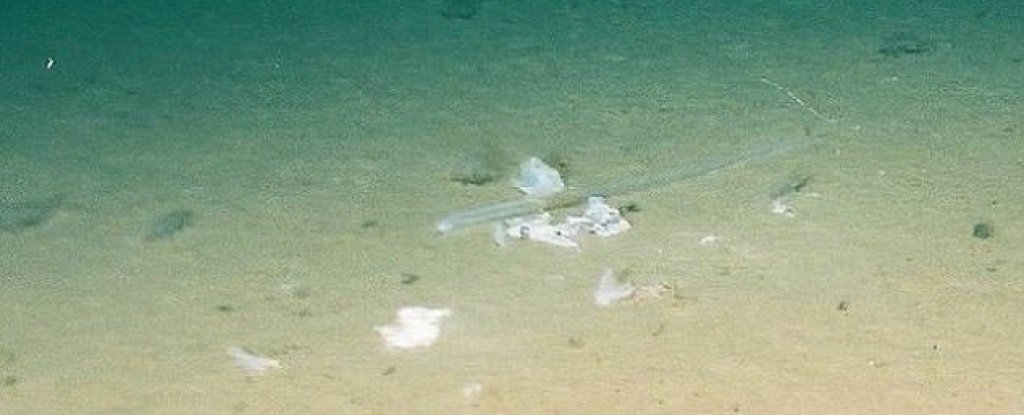
Take the test: How much do you know about plastic pollution in the oceans?
The above image[1] showing plastic waste was captured at the bottom of the Mariana Trench — the deepest point in the oceans — which extends nearly 10,975 meters down in a remote part of the Pacific Ocean. The image, after being disclosed to the public several years ago, has sparked heated debate globally as a harsh reminder of human impact on even the most remote and untouched corners of the Earth.

Societies are locked into a system where people are now producing quantities of plastic well beyond what any country can properly deal with, resulting in a plastic pollution crisis affecting the environment, especially the oceans.
Plastic pollution is a global problem that requires not only systemic change and government regulations, but also positive individual actions that can help the Earth.
Even with all the news stories and available research, how much do you know about plastic pollution? Take the quiz below to test your knowledge! (Answers are at the bottom of this article.)

How many correct answers did you get?
As we continue to rely on fossil-based single-use plastics, the environmental cost of using convenient plastics is becoming more and more inconvenient for the planet. #ItIsInOurHands to do our part to reduce plastic pollution in our daily lives and take steps to protect our oceans.
##############
Answers:
- 85%[2]
- 5 grams[3]
- 8 million tonnes[4]
- Single-use plastic bags[5] (Fact: single-use plastic bags account for 14.1% of the overall plastic waste in oceans)
- 20 years[6] (Fact: it takes as long as 450 years for a plastic bottle to break down)
- 91%[7]
- Up to USD$33,000 per tonne of marine plastic[8]
[1] Credit: Japan Agency for Marine-Earth Science and Technology (JAMSTEC).
[2]https://www.un.org/sustainabledevelopment/blog/2023/08/explainer-what-is-plastic-pollution/
[3]https://updates.panda.org/are-you-eating-plastic
[4]https://ourworldindata.org/how-much-plastic-waste-ends-up-in-the-ocean
[5]https://www.greenmatch.co.uk/ocean-pollution-facts
[6]https://www.weforum.org/agenda/2018/11/chart-of-the-day-this-is-how-long-everyday-plastic-items-last-in-the-ocean/
[7]https://cleancoasts.org/our-initiatives/break-up-with-plastic/
